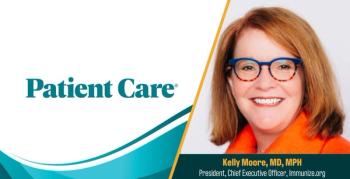
|Slideshows|May 26, 2020
5 New COVID-19 Myths plus 5 More that Won't Go Away
Author(s)Grace Halsey
The COVID-19 pandemic continues to be fertile ground for odd and often dangerous myths about transmission, prevention, and treatment. We found 5 new ones.
Advertisement
The World Health Organization updates its
Newsletter
Enhance your clinical practice with the Patient Care newsletter, offering the latest evidence-based guidelines, diagnostic insights, and treatment strategies for primary care physicians.
Advertisement
Latest CME
Advertisement
Advertisement
Trending on Patient Care Online
1
First Oral Film Treatment for Erectile Dysfunction in Men Gains FDA Approval
2
Long-Term Data Support Sustained Bimekizumab Response in Hidradenitis Suppurativa
3
Weekly Dose Podcast: New Obesity Data, Insulin Guidance, and Mental Health Screening
4
Topline Phase 2 Data Show Roflumilast Cream Improves Atopic Dermatitis in Infants as Young as 3 Months
5































































































































